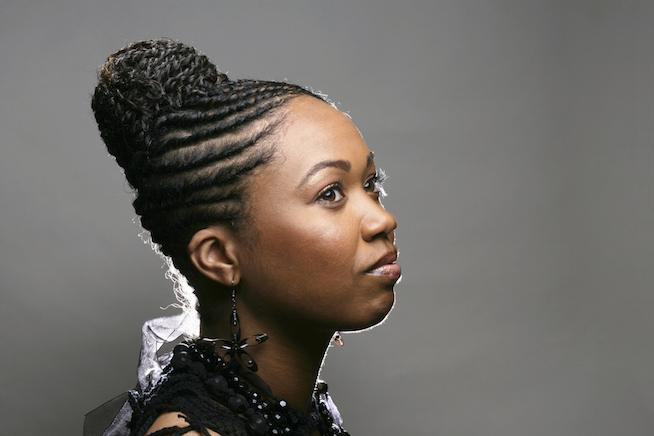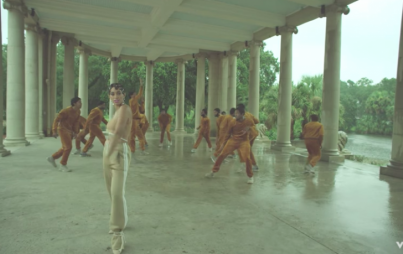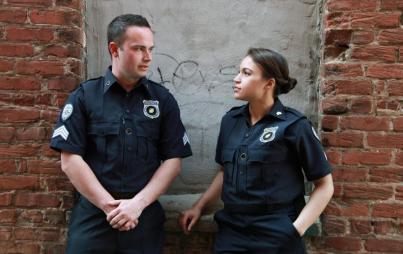
Why are the stories of brutality against black women being ignored? Is it ignorance, discomfort, or something worse?
Much of the world is now either aware of or has seen the disturbing video of a police officer brutally grabbing a young Black teenager by the neck, pulling her backward, yanking her out of her desk and slinging her across the classroom. The now former police/school resource officer and football coach Ben Fields was fired from his job last week after massive public outrage. The FBI has confirmed that it has launched an internal investigation of the incident.
In another incident earlier this year, many of us witnessed the dramatic, intense, and shocking video of several unarmed Black teenagers at a suburban pool party held at gunpoint by a McKinney, Texas, police officer. The officers hurled a string of profanity laced tirades toward the teens. While the entire chaotic spectacle was troubling, the most disturbing part of the incident was seeing an officer throw Dajerria Becton, a 14-year-old Black female less than half his size to the ground, place his entire body on her, pull her hair, hit her, handcuff her, and yell at her to shut up. .One can hear the unarmed, bikini-clad Becton crying, “I want my mother. He hit me.” The officer responsible for such odious behavior, Corporal Eric Casebolt, submitted his resignation days later.
♦♦♦
The fact is that police mistreatment of Black people has long historical roots and is nothing new. Just as troubling is that the larger society (as well as much of the Black community) has a tendency to focus primarily on violence or issues that plague Black men. Let me make it clear, there is no doubt that Black men, particularly economically disadvantaged, lower-income and minimally educated Black men, are far too often the victim of horrendous police brutality. Moreover, Black men are more likely to be the victims of police brutality and misconduct (though the rate for Black women is increasing).
The fact is that Black women are becoming increasingly vulnerable to police misconduct, violence, marginalization and gross misrepresentations in the media. While most of us have heard the names of Eric Garner, Michael Brown, Jordan Davis and Freddie Gray, many people are not as familiar with the names of Rekia Boyd, Renisha McBride, Aura Rosser, Kayla Moore, Salisa Luster, Tanisha Anderson and Carolyn Sue Anderson. Each of these Black women were the victims of brutality at the hands of police. While there was some degree of attention given to these tragedies, the level of outrage did not rise anywhere near the level of focus centered on their male counterparts.
It is common knowledge that Black women have been routinely disrespected and misrepresented by the mainstream media. The images of loudmouthed, finger-pointing, confrontational, male bashing women have been too eagerly showcased. In fact, when perusing through Internet comments discussing the pool party incident, numerous people have made the argument that the young lady probably “mouthed off at the officer” or was a “typical loudmouth, confrontational Black woman” who was at fault in one way or another.
This sort of reaction was evident in the Sandy Valley High School case. There were a small segment of people across racial lines, including perennially Black bashing/respectability politics engaging CNN anchor Don Lemon and his younger, yet often no less offensive counterpart, Raven-Symoné of ABC’s famed gabfest program The View. Both Lemon and Symone generated considerable outrage by suggesting that the young lady in question was likely as much at fault given her refusal to comply with Officer Fields' demands. I am not arguing that the young lady should have been defiant and antagonistic toward the officer (she should not have been). With that said, there is absolutely no justification for the manner in which Officer Fields responded. He could have broken they young lady’s back or neck. Her head could have hit a desk or she may have been killed using such unnecessary force. Again, there is no just cause for such actions. NONE!
♦♦♦
Reading and listening to these outlandish “blame the victim” comments online and hearing them being espoused by supposedly enlightened news pundits and celebrities enraged me even further. It was perverse commentary at its worst. Even more problematic was that the sheriff commented that Fields was probably not a racist given that he was/is currently in a romantic relationship with a Black woman!
And!? So!? What the hell does this have to do with the incident that took place? Another South Carolina White man, legendary hardcore segregationist Strom Thurmond impregnated his family’s maid, Carrie Butler, and produced a Black child. Thomas Jefferson impregnated Sally Hemmings. NYPD officer Justin Volpe, that sodomized Abner Louima in the late 1990s, was engaged to a Black woman at the time! Historically speaking, White men, particularly White southern men, have been sexually involved with Black women since the days of slavery. In many cases, the relationship was far from equal. I am not saying whether Ben Fields is racist or not. I don’t know nor do I care. What I am saying is that no one should assume that just because someone is dating or has even married across racial lines, that they are free of racial bias or prejudice.
Black women have long been depicted as oversexed and manipulative Jezebels. So-called retrograde reality type programs such as The Real Housewives of Atlanta, former VH1 program Flavor of Love, and other related TV series often promote grossly distorted images of Black women. Such stereotyping begins as early as elementary school, where young Black girls are quickly ascribed with characteristics that label them as abnormal and different from other girls, and, in particular, White middle-and upper-class girls. Like their Black male younger brethren, they are not seen as young girls, but rather are viewed as having traits that most people associate with adults.
♦♦♦
Another example of this sort of alarming degree of indifference and double standard toward Black women was the case of Atlanta mega preacher Eddie Long a few years back. At the time, the immensely popular minister was accused of engaging in inappropriate sexual conduct with several teenage boys. The case was settled out of court and had a detrimental impact on Long’s ministry. I remember having a few conversations with other Black men, some of them friends, others total strangers, about the scandal. A common sentiment that frequently emerged from these conversations was that they would have been enraged if Pastor Long had sent those pictures to their son(s). In fact, several made the case that they would have inflicted bodily harm on Long had he done so.
What was so interesting and disturbing about these conversations was the routine narrative that every one of these men/fathers were concerned about the welfare of their sons, yet not one of these individuals (all Black men) stated that they would be outraged had Long sent photos of himself to their underage daughters. As far as I am concerned, this would have been just as problematic. This really annoyed me and I called a couple of these men out on it. My response was frequently met with silence or a diverting of the subject. A few of the men fumbled around for words.
It was clear that these men would not have tolerated what they viewed as an attempt to sexually violate or manipulate their sons (likely due to long-held homophobic attitudes in Black masculine circles), but were more ambivalent or perhaps even benignly indifferent toward the plight of their daughters. Again, I was stunned and disturbed by such arguably hypocritical reactions.
Black women, like Black people in general, have long languished on the margins of society. These aforementioned examples provide ample evidence that this is indeed the case. It is incumbent that while we not dismiss the real social, economic, and other problematic issues that have and are continuing to lash down large segments of the Black male population, we must not ignore or dismiss similarly searing issues as they increasingly relate to Black women.
This article originally appeared on the The Good Men Project. Get the best of The Good Men Project delivered daily or weekly, or become a Premium Member!







